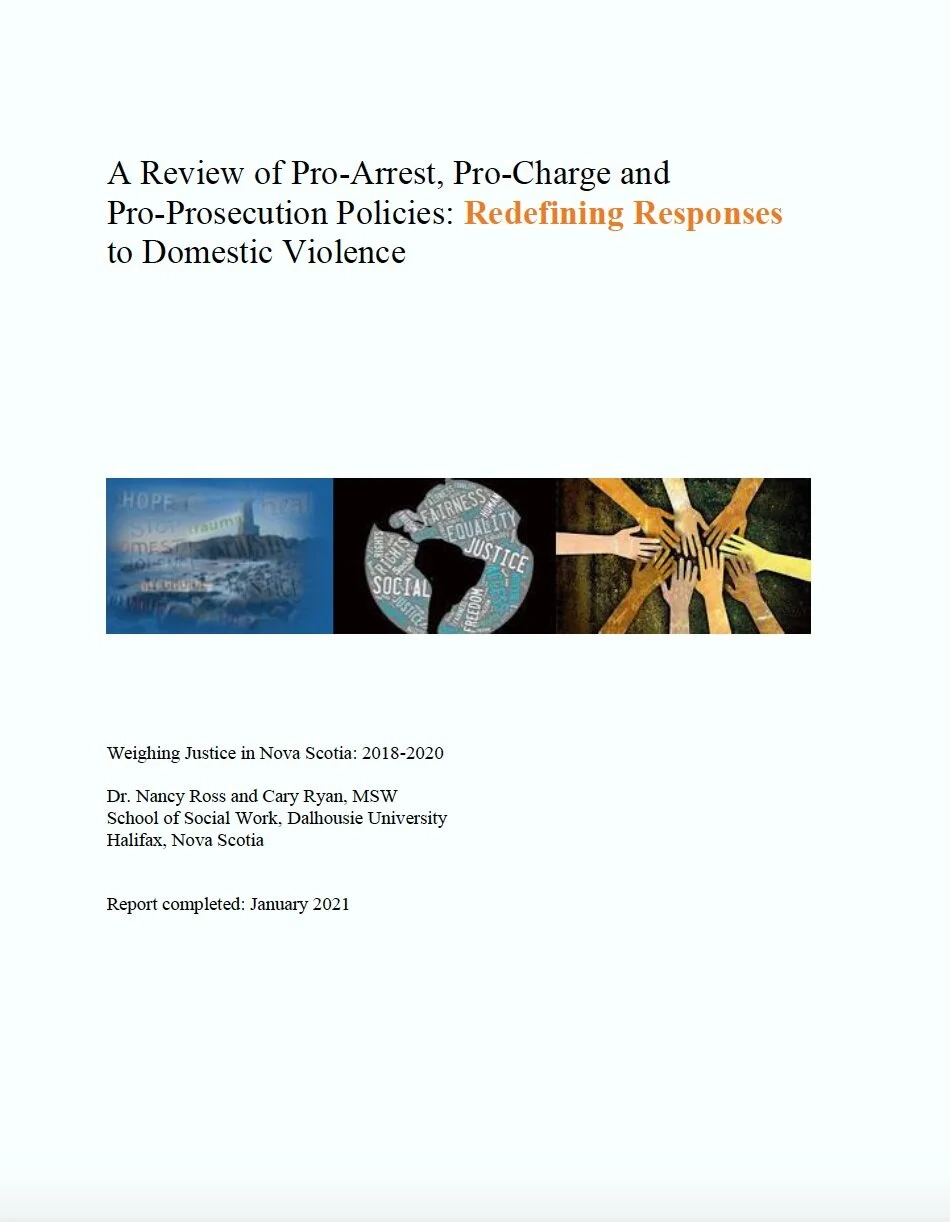A Review of Pro-Arrest, Pro-Charge and Pro-Prosecution Policies: Redefining Responses to Domestic Violence
Dr. Nancy Ross and Cary Ryan from the School of Social Work at Dalhousie University have completed this report for the Weighing Justice project. Be the Peace Institute was a proud supporter and collaborator on this project.
“We welcome all readers to this review of pro-arrest, pro-charge and pro-prosecution policies in Canada, a review that highlights the need to define better responses to domestic violence. We publish this report during the COVID-19 global pandemic which has signaled both tragedy and possibility as well as an urgent call to action. During the first few months of the pandemic, the media posted news stories of the largest mass shooting in Canadian history, depicted images of global marches against anti-black racism, reported on an overdose crisis, and described marked increases in violence against women and children, all while social isolation or distancing measures were enforced. At the same time, invitations to re-imagine a different world have been ignited by calls to “defund police” and, in our province of Nova Scotia, redesign the justice system to respond to the systemic and structural failures of the carceral state. Domestic violence, referred to as a concurrent pandemic, has emerged in this time of social change as a central issue requiring urgent reform (Illingworth & Ferrara, 2020), thus highlighting the timeliness and significance of the research presented here.
With loss of employment, reduced income, social isolation, closure of schools and childcare facilities, and increased family tensions, all a result of restrictions of the pandemic, the risk of domestic violence has increased for many Canadians (Allen & Jaffary, 2020; Ilingworth & Ferrara, 2020). A Statistics Canada (2020) survey released in April 2020 describing the impacts of the pandemic indicates that one in ten women are very or extremely concerned about the possibility of violence in their homes due to the stress of confinement (Illingworth & Ferrrara, 2020). According to Wanda McGinnis, CEO of the Wheatland Crisis Society in rural Alberta, a pandemic does not signify the end of violence but rather makes experiences of violence silent (Ilingworth & Ferrara, 2020).
Our research contributes to a critical discourse related to the persistence of unacceptably high rates of gender-based violence and highlights the need for innovative response. Ultimately, this research demonstrates that a redesign of justice responses to domestic violence must become more flexible in order to be family- and human-centered and trauma-informed.
We hope our findings support a collective call to action and that you find this report useful in collective efforts to end gender-based violence.”
Nancy Ross Assistant Professor, MSW, PhD School of Social Work, Dalhousie University and Cary Ryan, MSW School of Social Work, Dalhousie University
To read the full report, click on the link.

